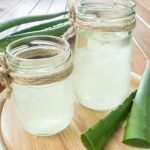Article by Sebastian Pole
The skin is the body’s largest organ involved in respiration, absorption and regulation of body temperature. A disorder of the skin not only causes pain, debility and discomfort but also untold anxiety, misery, sleeplessness and embarrassment. According to the British Skin Foundation, about seven million people in the UK suffer from a serious skin condition.
Skin Problems
Skin diseases reflect the changes occurring within each person, revealing their ability to assimilate and metabolize foods, environmental chemicals, stress and trauma. As a natural route out of the body, the skin can also reflect the body’s own eliminative systems, the functioning of the hormonal-endocrine systems and the immune response, as well as genetic tendencies.
Common symptoms of skin problems include inflammation, itching, redness, bleeding, oozing, infection, pain, hardened skin, dis-coloured skin, disturbed sleep and anxiety.
According to Ayurveda, the skin is a healthy by-product of the different tissues, especially plasma, blood and muscles. Healthy plasma creates the top-most layer, the epidermis, giving smooth and soft skin and even colour without blemishes or moles. Healthy muscle tissue gives strong and firm skin to a deep level. From an Ayurvedic viewpoint, the quality of fire and heat in the body, known as pitta, resides in the skin (as well as the liver, blood, eyes, heart and digestive system) and gives it vital colour and lustre. The association between pitta and the blood directly impacts on skin quality. Any disturbance of the blood can lead to skin disturbances. If the blood is deficient in nutritional qualities, it may lead to dry, rough, pale, cold and cracked skin. If blood becomes excessive, it disturbs the tissue digestive fire and may lead to acute flushing, redness and early attacks of dermatitis, urticaria and acne. When blood is corrupted over a long time it can cause chronic discolorations of the skin including eczema, dermatitis, acne, psoriasis, urticaria, bleeding from the skin and gums, herpes and easy bruising.
Cause of Skin Diseases
All skin diseases involve aggravation of all three constitutional types, or doshas on both a physical and mental level, and disturbance of the tissues.
The causes are:
- Toxins accumulating due to low digestive fire;
- Intake of incompatible foods causing low digestive fire (e.g. fish and milk, fruit and milk or yoghurt, stale foods);
- Excess oily, fatty and heavy food causing low digestive fire and aggravation of toxic heat and mucus;
- Excess sour and salty foods increasing liquids in the body, causing obstruction to the channels of circulation and aggravation of heat and mucus;
- Excess meat, yoghurt, oil, salt, fish, pastries, fresh grains, sesame seeds, milk, sugar cane juice, sugar, alcohol, coffee, acidic foods causing heat and mucus toxins;
- Exposure to extreme heat after a heavy meal;
- Exposure to extreme cold immediately after exposure to heat;
- Exercising immediately after taking food, disturbing digestion;
- Sleeping during the day creating mucus toxins;
- Regularly working near a fire and excessive exposure to the sun, causing pitta increase and aggravating the blood;
- Physical exhaustion;
- Genetic tendencies and familial history.
Most pharmaceutical medications have side-effects, ranging from local irritation to, in the case of some steroidal anti-inflammatories, serious conditions, such as the depression of the immune system, reduction of white blood cell count, osteoporosis, peptic ulcers, etc.
Ayurvedic Approach
In Ayurveda, the most effective approach is of purification to clear the excess toxins.
This is followed by a period of rejuvenation with nutritive massages and food therapy, with an aim to:
- Increasing the digestive fire;
- Clearing toxins;
- Improving liver function;
- Reducing high pitta;
- Calming stressed vata;
- Liquefying and clearing kapha.
Purgation (using laxatives) holds a special place for the treatment of skin diseases, offering a quick relief from acute exacerbations, removal of the accumulated toxins, and purification of the channels and the tissues. It also strengthens agni (digestive fire) at the digestive, liver and tissue levels and, therefore, will prevent the formation of ama, the primary causative factor.
Natural Remedies
Skin disorders are often difficult to treat, and need patience and persistence. However, there are some very effective natural treatments for regulating skin quality.
The recommendations that Ayurveda makes are:
Neem & Sarsaparilla Formula for skin inflammations when they are red, sore, oozing and itchy; including eczema, psoriasis, acne and rosacea. This formula contains Indian sarsaparilla, gotu kola, neem, manjishta, turmeric, licorice and bhringaraj. These herbs help to clear inflammatory heat and cleanse the blood, stopping itching and infection.
Triphala Plus is based on the famous Triphala formula, with an extra boost to treat stubborn constipation, dry stools, toxin accumulations and bad breath. Containing triphala, haritaki, rhubarb root, psyllium seed, linseed, licorice and fennel, it acts as a bulk laxative, colon tonic and detoxifier. It literally draws toxins from the tissues into the bowel and then helps to naturally expel them.
Organic Aloe Vera Juice, being a gentle, cooling herb, helps to clear inflammatory heat from the skin, while supporting gentle detoxification of the liver. Pukka’s Organic Aloe Vera is one of the best Ayurvedic herbs for healing burns, scars, stretch marks and wounds, as it does not contain any synthetic preservatives.
Cleanse tea is a 100% organic herbal tea made from a delicious blend of nettle, peppermint, fennel seed and aloe vera.
Include lots of asparagus, beetroots, spinach, almonds, walnuts, ghee, turmeric, fresh coriander, basmati rice and quinoa in your diet, as these help to clean the liver and promote the health of the skin.



